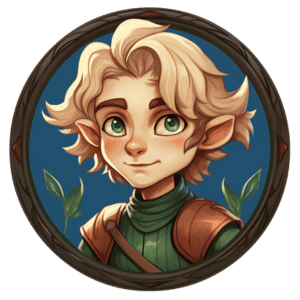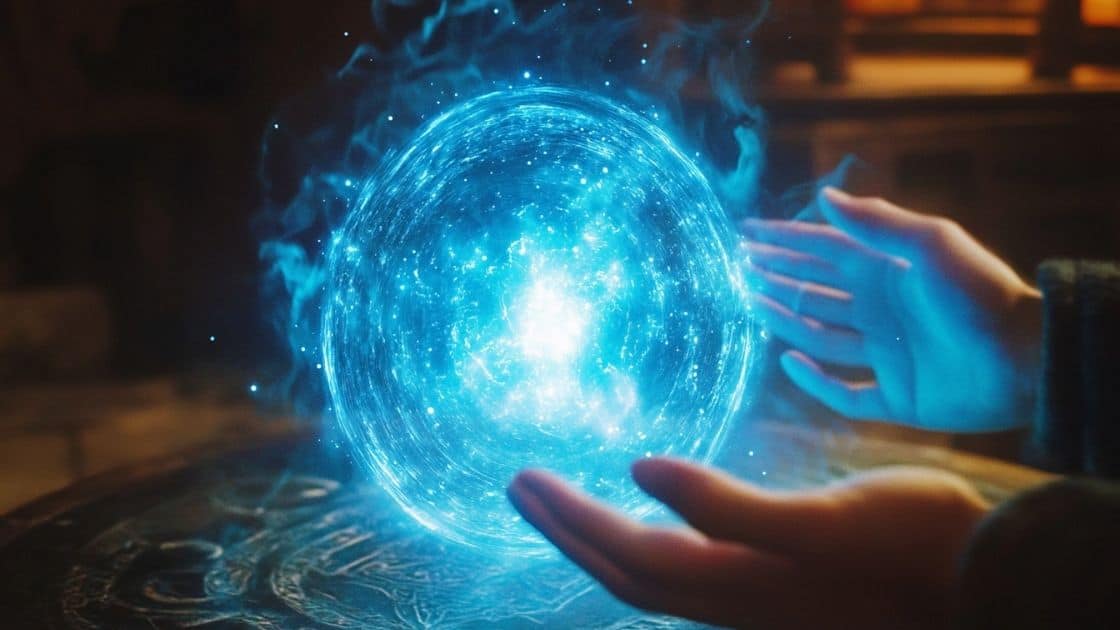Creating a compelling magic system can feel as daunting as casting an actual spell. Whether you’re shaping your first fantasy world or fine-tuning a game design, an engaging magic system is essential. It’s the alchemy that breathes life into your story or game, setting the stakes, establishing the rules, and sparking imagination.
But where do you even begin? This guide is here to help fantasy writers and game designers overcome the invisible walls of writer’s block and get the creative juices flowing. By the time you’re done reading, you’ll have a clear, actionable framework to start crafting a magic system that feels innovative, logical—and uniquely yours.
Understanding the Basics of Magic Systems
Before you start sketching out your first spell or enchanting your protagonist’s dagger, it’s essential to understand what a magic system is and its core components.
What Exactly is a Magic System?
A magic system is the set of rules and principles that govern how supernatural elements function within your world. It’s the scaffolding that supports the fantastical, ensuring that those daggers don’t become absurdly overpowered and that your story’s internal logic remains coherent.
There are two broad types of magic systems:
- Hard Magic Systems rely on clear, defined rules (e.g., Brandon Sanderson’s Mistborn series). Readers understand where magic comes from, how it works, and its limits.
- Soft Magic Systems are looser and more mysterious (e.g., J.R.R. Tolkien’s The Lord of the Rings). They evoke a sense of wonder without detailing the minutiae.
Key Components of a Magic System
Every magic system is made up of three fundamental parts:
- Source – Where does the magic come from? Is it a natural force (like mana), divine energy gifted by gods, or something alchemical and science-like?
- Rules – How does the magic work? What are its limitations? Rules ensure consistency, preventing characters from using magic as a convenient plot fix.
- Impact – How does magic shape society? What role does it play in politics, economics, or culture? The more thoroughly integrated the magic is into the world, the richer your setting will feel.
Overcoming Writer’s Block: Generating Ideas for Your Magic System
Staring at a blank page with no inspiration? Don’t worry—magic can be conjured from even the simplest of ideas. Here are ways to spark your creativity.
Try Creative Brainstorming Techniques
- Combine the Familiar with the Strange
Start with something ordinary—like fire—and add a twist. What if magical fire burns emotions instead of materials?
- Use “What If?” Prompts
What if only children can use magic? What if casting magic shortens your lifespan?
- Draw from Nature
Observe natural phenomena like storms, growth cycles, or animal behaviours, and imagine how they could inspire magical powers or limitations.
Building on Existing Systems vs. Creating from Scratch
It’s okay to draw lessons from existing works. Take Tolkien’s languages, the elemental bending in Avatar, or the complex rituals in Fullmetal Alchemist. Analyse what works, adapt it, and add your fresh spin. Just ensure your final creation stands on its own.

Writing Magic: The Ultimate Guide to Mastering Worldbuilding
Unlock the secrets of worldbuilding and storytelling with this ultimate guide. Perfect for writers, creators, and dreamers alike.
View on AmazonDeveloping the Rules of Your Magic System
Rules breathe life into your magic. Ever read a story where magic feels like an unpredictable free-for-all?
Chaos ensues.
Clear rules mean clear stakes.
The Importance of Consistency and Limitations
Magic without limits quickly devolves into deus ex machina territory—a magical “get out of jail free” card that can shatter your narrative’s tension. Instead:
- Consider costs to using magic. Does it drain energy, risk damage to the user, or require rare resources?
- Set specific boundaries. Perhaps magic only works during a lunar eclipse or for individuals who survive a deadly ritual.
Examples of Well-Crafted Magic Rules
- Alchemy in Fullmetal Alchemist emphasises equivalent exchange—every gain requires an equal loss.
- Allomancy in Mistborn allows characters to ingest and “burn” metals for powers, carefully explaining the limits of each material.
Integrating Your Magic System into World-Building
Magic isn’t just a tool for characters; it’s a force that can define civilisations, economies, and even morality.
How Does Magic Shape Your World?
Think about the ripple effects of magic:
- Politics: Does magic divide rulers and common folk? Who controls access to magic?
- Economy: Is magic a commodity? Perhaps merchants trade enchanted artifacts or alchemists craft potions?
- Culture: Do people worship magic-wielders or fear them? What myths surround your magic system?
Make It Believable
Even in fantastical settings, your magic should feel authentic. If you say magic users must train for decades, don’t introduce a character who masters it overnight.
Refining Your Magic System Over Time
Don’t expect your magic system to be perfect right out of the gate. Like any good potion, it often requires refinement.
Playtest and Experiment
If you’re designing for a game, run scenarios with your system in action. For novel writers, write short scenes to test how the magic works within your plot.
Seek Feedback
Share your system with trusted beta readers or fellow designers and writers. Their fresh perspectives can illuminate inconsistencies or fresh possibilities.
Iterate Based on Feedback
Refinement doesn’t mean overcomplicating things. Simplify as needed, clarify the rules, and eliminate elements that don’t serve your story or game.
Closing Words
Building a magic system is more than just a technical exercise—it’s a chance to explore what truly sparks your imagination. Whether you’re crafting spells for a warrior-turned-sorcerer or building a society that thrives off enchanted trade routes, your magic system has the potential to captivate your audience.
If you’re still hesitant, remember this: no system is complete at the start. All you need is a single idea to begin, and the rest will grow over time.
Now it’s your turn. Start asking questions, imagining possibilities, and designing rules. Then go forth and create magic.

Leo Hambling is the author of Writing Magic, a beginner’s guidebook for creating magic systems. With an MA in Creative Writing from the University of Essex, and 15+ years of experience writing novels, games, and short stories, Leo is an expert in the craft of building worlds.

